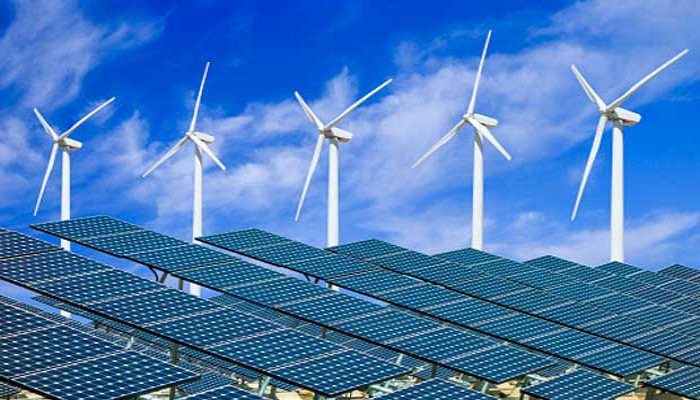British International investment plans to invest $1 billion in India's clean energy projects
- In Reports
- 11:43 AM, Sep 27, 2023
- Myind Staff
Determined effort to address the challenges of climate change, the UK government's development finance institution, British International Investment (BII), has unveiled a substantial plan. BII aims to invest $1 billion in Indian clean energy projects by the year 2026.
This ambitious endeavor is primarily motivated by India's remarkable growth in renewable energy capacity. BII's CEO, Nick O'Donohoe, underscores the critical role that India is poised to play in attaining the mutually agreed-upon 2030 climate objectives of both India and the United Kingdom.
The initiative signals a significant commitment to addressing climate change and fostering sustainable energy solutions, leveraging the promising landscape of clean energy opportunities in India. This investment not only aligns with environmental goals but also underscores the international cooperation required to combat the global challenge of climate change.
Reuters quoted O'Donohoe as saying, "We are evaluating exciting businesses in sectors such as bio-fuels, circular economy ... as part of the vision for the 2030 roadmap agreed between India and the UK."
British International Investment (BII), the UK government's development finance institution, is making substantial strides in its commitment to climate finance in India. Last year, BII invested over $300 million in climate-related initiatives within India. These investments extended across various sectors, including renewable energy, electric mobility, and sustainable agriculture.
Currently, BII's portfolio in India stands at an impressive $2.2 billion, spread across more than 290 businesses. Notably, in 2022, BII pledged an investment of up to $250 million in Mahindra and Mahindra Ltd's new electric vehicle unit, underscoring its confidence in the Indian market.
Nick O'Donohoe, BII's CEO, expressed enthusiasm for investing in India. He highlighted the buoyant stock markets and stable political environment as influential factors in BII's investment decisions. Although specific returns on Indian investments weren't discussed, O'Donohoe acknowledged that India is in a comparatively favourable phase compared to some African nations facing challenges such as high debt, inflation, and weakening currencies.
BII's primary goal is to support emerging entrepreneurs and companies struggling to secure funding for projects aimed at reducing emissions. According to a report by The Economic Times, O'Donohoe emphasized the shared focus of India and the UK on green hydrogen and its vital role in achieving a net-zero future.
Besides green hydrogen, BII is exploring opportunities in various sectors, including biofuels, the circular economy, micro-enterprises lending, agriculture, and agritech.
Nick O'Donohoe also addressed the reform of multilateral development banks (MDBs), a significant topic endorsed by the Delhi Declaration of the G20 leaders. He anticipates progress in this area at the upcoming World Bank meeting in Marrakesh. O'Donohoe stressed the potential for MDBs to more aggressively leverage their balance sheets for climate finance, a crucial step in meeting the financing needs outlined in the Delhi Declaration.
Image source: Hindustan Times







Comments